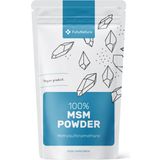Hypertension - and what to do about it.
In the last few decades, high blood pressure has developed into a real civilization disease from which more and more people in the western world are suffering. The numbers are growing steadily around the world, and older people in particular often have problems with them. Here's what you can do about high blood pressure, but first let's take a general look at blood pressure.
What does the body need blood pressure for anyway?
Blood vessels fill our entire body, from the muscles to the organs, and supply the individual cells with nutrients and oxygen and waste products are also removed. When a muscle is used, the blood vessels widen; when the muscle is at rest, they narrow again.
In order for the blood to get quickly through our huge vascular system to the organs and tissues (the blood vessels in our body would be 100,000 kilometres long in a row), it has to be under pressure. This pressure is built up by the heart and the resistance of the vessel walls. The blood pressure now describes the pressure in the vessels. This pressure is constantly changing. When we are upset or stressed, blood pressure rises; when we are relaxed, it falls again. These natural fluctuations are basically completely harmless. However, it becomes problematic if the pressure is constantly too high.
High Blood Pressure Risk Factors
High blood pressure, or hypertension, is used if the blood pressure is 140/90 or higher. That brings with it some problems. Chronic high blood pressure is a risk factor for:
- Strokes
- Acute myocardial infarction
- Heart failure
- Sudden death
The sneaky thing about high blood pressure is that it only shows up when it's too late. Now more than 20% of people have high blood pressure and most don't even know it. Only regular measurements and clarification with a doctor in case of suspicion will help.
What contributes to high blood pressure?
There are several factors that contribute to chronic high blood pressure. The two most important factors are genetic makeup and lifestyle. The latter includes, for example, the question of whether one smokes or is overweight (especially around the stomach) or has a high blood sugar level. There is nothing you can do about genetic predisposition, but you can do it in the area of lifestyle. Here it is important to make the right changes before drug treatment is necessary.
How to Prevent High Blood Pressure
What can you do now to lower existing high blood pressure or to prevent high blood pressure from becoming too high? Here are the main factors:
Proper Nutrition
Most people in developed countries have diets that are too fatty, too salty and too unbalanced. So make a conscious decision to eat a diet that is high in fruits, vegetables, fibre and healthy fats. You should also make sure that you reduce your salt consumption significantly. Alcohol consumption should also be restricted.
Lose Excess Weight
If you suffer from high blood pressure and you are also overweight, you should definitely try to lose a few pounds. As already mentioned, obesity is one of the main factors in the development of high blood pressure.
Regular Exercise
Regular exercise and exercise have been shown to lower blood pressure. Endurance sports such as running, swimming, Nordic walking or cycling. But what about strength training?
Moderate Weight Training is Good
Recent research has shown that regular strength training is good for high blood pressure, even for people with cardiovascular diseases. That sounds counterintuitive at first, because the blood pressure rises sharply during strength training, which should actually carry a risk. In fact, it has been shown that regular, moderate strength training has many positive influences on several relevant factors that influence blood pressure. People with high blood pressure were able to achieve the highest reduction in blood pressure through strength training1, which was subsequently associated with a reduction of around 18% of the most common cardiovascular events.2 Due to the additional muscle strength, the blood pressure reaction and also the heart rate are lower during exercise, which is more gentle on the cardiovascular system.
1 MacDonald, HV, Johnson, BT, Huedo-Medina, TB, Livingston, J., Forsyth, KC, Kraemer, WJ, et al. (2016). Dynamic resistance training as stand-alone antihypertensive lifestyle therapy: a meta-analysis. J. Am. Heart Assoc. 5, 1-15.
2 Blood Pressure Lowering Treatment Trialists Collaboration (2014). Blood pressure-lowering treatment based on cardiovascular risk: a meta-analysis of individual patient data. Lancet 384, 591-598.
Latest reviews
-
 4.9 (9)
4.9 (9)Alnatura Organic Beetroot Juice, 1 l
Bestseller- Juice from organic beets
- Naturland quality
- Vegan
£2.35 (£2.35 / l)Delivery by March 02
-
 5.0 (1)
5.0 (1)FutuNatura MSM Powder, 250 g
- The beauty mineral
- Organic sulfur compound
- Also ideal for sports
£9.85 (£39.40 / kg)Delivery by March 02
-
 5.0 (1)
5.0 (1)tetesept Iron + B12 + C + Folic Acid, 30 tablets
- 1 tablet daily
- Ideal for everyday support
- Gluten and lactose-free
£3.35 (£372.22 / kg)Delivery by March 02
-
 5.0 (4)
5.0 (4)Nature Love Coenzyme Q10, 60 capsules
- From plant fermentation
- One pack contains a 2-month supply
- Vegan
£20.50 (£418.37 / kg)Delivery by March 02
Magazine Articles:
Discover VitalAbo :
-
Great Britain: Free standard delivery from £69.90
-
Free
returns -
We operate in a
climate-conscious manner. More than 8.750 products

